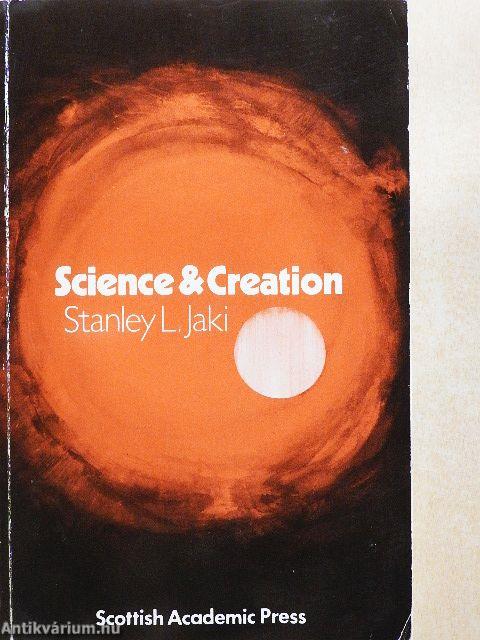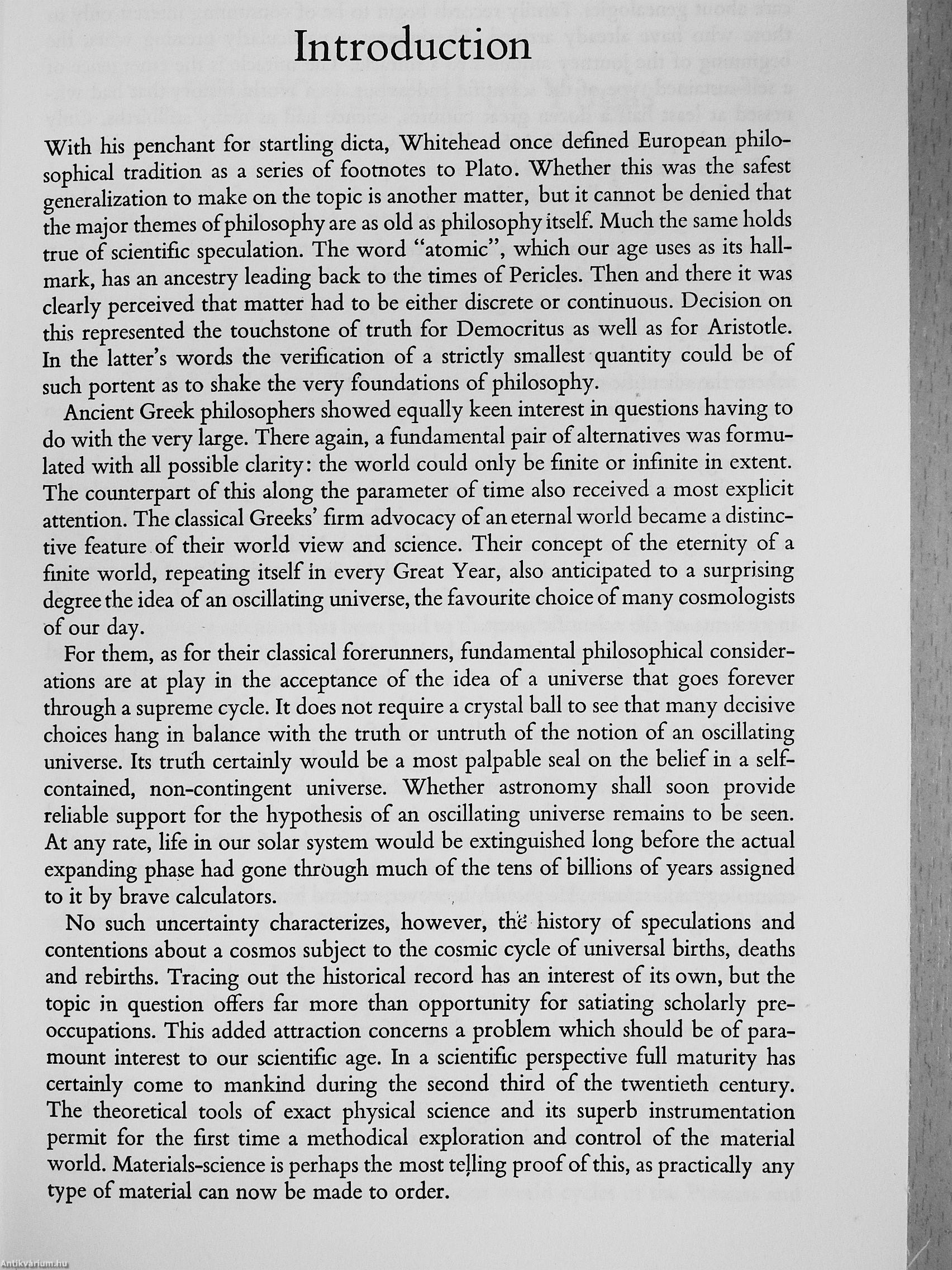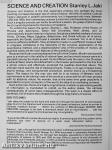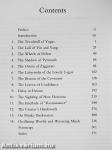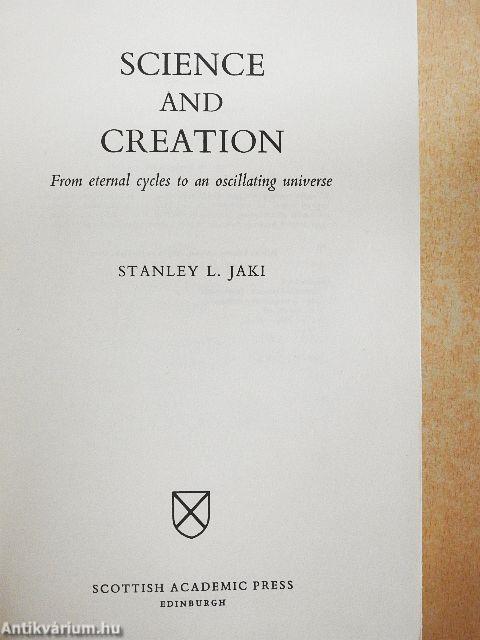1.066.456
kiadvánnyal nyújtjuk Magyarország legnagyobb antikvár könyv-kínálatát

VISSZA
A TETEJÉRE
JAVASLATOKÉszre-
vételek
Science and Creation
From eternal cycles to an oscillating universe
| Kiadó: | Scottish Academic Press |
|---|---|
| Kiadás helye: | Edinburgh |
| Kiadás éve: | |
| Kötés típusa: | Ragasztott papírkötés |
| Oldalszám: | 377 oldal |
| Sorozatcím: | |
| Kötetszám: | |
| Nyelv: | Angol |
| Méret: | 23 cm x 15 cm |
| ISBN: | 0-7073-0460-1 |
naponta értesítjük a beérkező friss
kiadványokról
naponta értesítjük a beérkező friss
kiadványokról
Előszó
TovábbFülszöveg
SCIENCE AND CREATION Stanley LJaki
Science and Creation is the first systematic probing into perhaps the most puzzling, but least discussed fact of cultural history: the birth of science. Cultural history abounds in parallel achievements, but It happened only once, between 1250 and 1650, that rudimentary science turned Into a self-sustaining enterprise. Such a singular process can hardly be without a lesson, the grasp of which miight be of crucial importance for the future of mankind.
To unfold this lesson the author, Stanley L. Jaki, Professor of the History of Physics and Astronomy, Seton Hall University, New Jersey, and an internationally known historian of science, first gives a detailed analysis of ancient Hindu, Chinese, Maya, Egyptian, Babylonian, and Greek cultures, all of which, especially the Greek, could boast a valuable start in science. Yet, in all of them science suffered a stillbirth. They all failed to muster in a sufficient measure faith In progress, confidence... Tovább
Fülszöveg
SCIENCE AND CREATION Stanley LJaki
Science and Creation is the first systematic probing into perhaps the most puzzling, but least discussed fact of cultural history: the birth of science. Cultural history abounds in parallel achievements, but It happened only once, between 1250 and 1650, that rudimentary science turned Into a self-sustaining enterprise. Such a singular process can hardly be without a lesson, the grasp of which miight be of crucial importance for the future of mankind.
To unfold this lesson the author, Stanley L. Jaki, Professor of the History of Physics and Astronomy, Seton Hall University, New Jersey, and an internationally known historian of science, first gives a detailed analysis of ancient Hindu, Chinese, Maya, Egyptian, Babylonian, and Greek cultures, all of which, especially the Greek, could boast a valuable start in science. Yet, in all of them science suffered a stillbirth. They all failed to muster in a sufficient measure faith In progress, confidence in the rationality of the universe, appreciation of the quantitative method, and a depersonalized view of the process of motion, all qualities which are the main features of the scientific quest.
Because the Koran overemphasized the will of the Creator, Muslim scholars fell prey to a mistrust in the validity of rational laws, and as a result science came to a standstill among the Arabs as well. Quite different was the case in the Christian, medieval West, where the biblical faith in the Creator permeated for the first time a whole culture and effectively produced the qualities described above. The ultimate result was the rise of classical physics. Today, in an age of space travel, atomic energy, and computerized production, science looms as a threatening factor. The reason for this may very well lie in an erosion of Western man's commitment to the biblical view of the world as a once-and-for-all linear process with its absolute values. No wonder, that at the same time great popularity is accorded to a cyclic conception of the world, the idea of an oscillating universe.
Such is the main theme of a highly original book. In which an astonishing wealth of Information is marshalled to unfold, as the author states, 'the ultimate consequences of some basic presuppositions'. The work Is a classic effort of synthesis, full of drama that vibrates through the long history of science.
SBN 7073 0460 I
"Jaki takes the reader by the hand and leads him through the labyrinth of cosmological ideas found in the literature and monuments of all great civilizations, before he arrives in Christian medieval Europe Within the confines of 350-odd pages SCIENCE AND CREATION manages to be both a thumbnail sketch and an encyclopedia Jaki has demonstrated once again his immense learning, his originality "
The (London) Times
"It would be difficult to praise this book too highly. It comes to grips with the problem of the stiMbirths and birth of science on a scale never attempted before a masterpiece!"
Journal of the Victoria Institute
Stanley L. Jaki, a Hungarian-born Benedictine priest, is Distinguished University Professor at Seton Hall University, South Orange, N.J. With doctorates in systematic theology and nuclear; physics, he has been, for the past two decades, specializing in the history and philosophy of science. In 1975 and 1976 he was Gifford Lecturer at the University of Edinburgh, and Fremantle Lecturer, in 1977, at Oxford University. He was the recipient of the Lecomte du Nouy Prize for 1970.Since 1985 he is membrecorrespondantde I'Academie Nationale des Science, Belles Lettres et Arts de Bordeaux. Vissza
Témakörök
- Idegennyelv > Idegennyelvű könyvek > Angol > Természettudományok > Egyéb
- Természettudomány > Általános természettudomány > A természet
- Természettudomány > Általános természettudomány > Tudomány
- Természettudomány > Általános természettudomány > Vallás
- Természettudomány > Általános természettudomány > Idegennyelvű > Angol
- Vallás > Határtudományok > Filozófia
- Filozófia > Témaköre szerint > Szakfilozófiák
- Idegennyelv > Idegennyelvű könyvek > Angol > Filozófia > Témaköre szerint > Szakfilozófiák
- Idegennyelv > Idegennyelvű könyvek > Angol > Vallás



